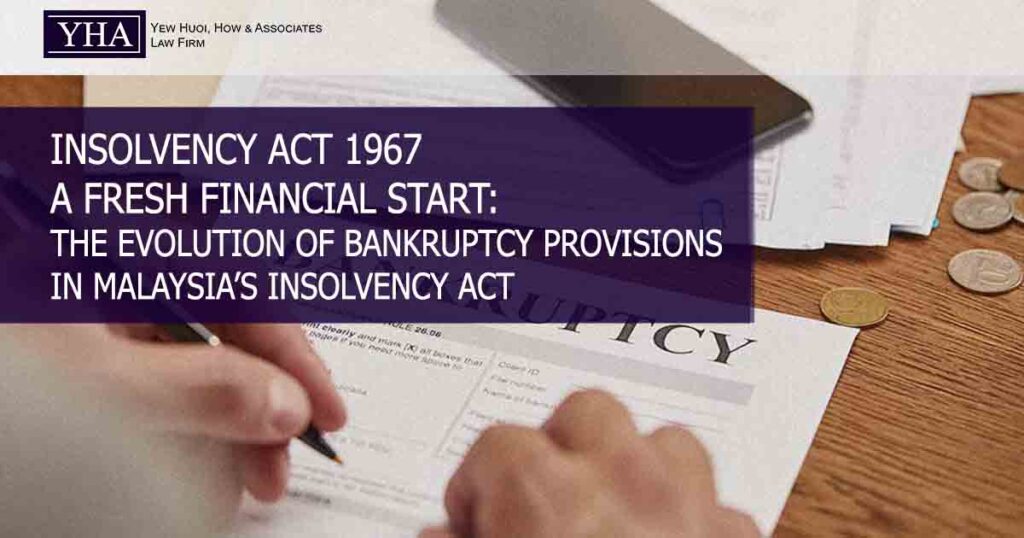The main intent of the recent amendment to Insolvency Act which came into force on 6.10.2023 is to provide individuals with a chance for a new beginning. Everyone can encounter financial difficulties and these updated provisions aim to ensure that a person facing bankruptcy is not perpetually weighed down by prior financial missteps or unexpected hurdles.
Introduction
- Bankruptcy in Malaysia is governed by the Insolvency Act 1967 which recent amendment has come into force on 6.10.2023.
- A person can be made a bankruptcy by a court order if they are unable to pay their debts of RM100,000.00 and above.
- There are several ways a bankruptcy may be discharged as follows:
- Annulment;
- Application to court;
- Discharge by Director General of Insolvency (“DGI”); and
- Completion of Bankruptcy Duration of 3 Years from the Date of Submission of Statement of Affairs (Automatic Discharge)
Annulment
- Happens when the bankruptcy order should not have been made in the first place or when the debt is paid in full.
Application to Court
- An application to court can be filed at any time after he is being adjudged bankrupt.
- The application must be supported by a report from the DGI as to the bankrupt’s conduct and affairs.
- When considering the application, the court will weigh between the rights of creditors to recover their debt with the bankrupt individual’s opportunity for a fresh start, taking into account the broader interest of public commercial reality.
- Several key factors will be taken into consideration:
- The bankrupt’s age and earnings;
- Health conditions;
- Length of time of the bankruptcy;
- Reason leading to bankruptcy;
- The proportion of debt settled;
- Behaviour of the bankrupt;
- Actions of the creditors; and/or
- The count of creditors in opposition.
Discharge through DGI
- Starting 1.10.2003, the DGI is granted the authority to discharge when there is an application by the bankrupt.
- This application can be submitted after a duration of 5 years after the date of the bankruptcy order.
Completion of Bankruptcy Duration of 3 Years from the Date of Submission of Statement of Affairs (Automatic Discharge)
- This is introduced in the Insolvency (Amendment) Act 2023 (Act A1695) which came into force on 6.10.2023.
- A bankrupt is automatically discharge on the expiration of 3 years from the date of the submission of the Statement of Affairs if the bankrupt has complied with all obligations and there is no objection from the creditors.
- Application for objection by the creditor(s) must be filed in the court.

